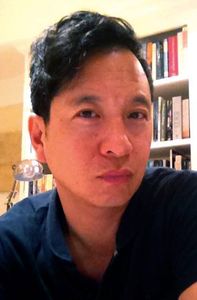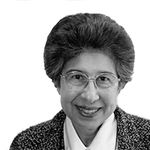The Politics of the City
Cities are at once sites of cooperation and conflict where individual and collective identities are forged, mobilized, and contested. They also foster the creation of institutions and practices designed to manage social and political struggles, as well as resource distribution. For Euro-American societies, the very concept of citizenship, civil rights, and democracy as a form of government are intimately linked to the evolution of cities, so much so that global development policies assume that urbanization and liberalization go (or should go) hand in hand. This panel of academics, practitioners and observers of the urban experience affirms the notion that cities are sites of conflict, but questions the inevitability (universality) of the urbanization-liberalization link. Panelists are asked to analyze the politics of identity, governance and conflict management in a range of Asian cities not only to test the limits the urbanization-liberalization relationship, but also to highlight the spectrum of (old and new) forms of resistance and logics of governance that emerge out of the Asian urban context.
Click here to view the conference agenda with presentation titles and abstracts. A video of this panel is available here.
Moderator
 Julian Go, Professor of Sociology
Julian Go, Professor of Sociology
Boston University
Julian Go is Professor of Sociology and Faculty Affiliate of Asian Studies at Boston University. He was an Academy Scholar at Harvard University’s Academy for International and Area Studies. His most recent book is Patterns of Empire: the British and American Empires, 1688-present (Cambridge U. Press, 2011), which won the 2013 Francesco Guicciardini Prize for Best Book in Historical International Relations from the International Studies Association, the prize for Best Book in Global & Transnational Sociology from the American Sociological Association, the American Political Science Association’s J. David Greenstone Book Award for the Best Book in Politics and History, and was one of Choice’s “Outstanding Academic Titles” in 2012. His other works include American Empire and the Politics of Meaning: Elite Political Cultures in the Philippines and Puerto Rico during US Colonialism (Duke U. Press, 2008), which won the Mary Douglas Prize for Best Book from the Sociology of Culture Section of the American Sociological Association and was a Finalist for the Philippines National Book Award. He received his Ph.D. from the University of Chicago in 2000.
Speakers:
Gavin Shatkin, Associate Professor, School of Public Policy & Urban Affairs and School of Architecture
Northeastern University
Gavin Shatkin is Associate Professor at the School of Public Policy and Urban Affairs and Director of the Asian Studies Program at Northeastern University. His research focuses on contemporary urban redevelopment practices and real estate dynamics in Asian cities, urban inequality, and community organizing and collective action around issues of shelter and infrastructure delivery in developing countries. His articles have appeared in Environment and Planning A, Cities, Urban Studies, the International Journal of Urban and Regional Research, Planning Theory, and other leading urban studies and planning journals. He is editor of Contesting the Indian City: Global Visions and the Politics of the Local (Wiley, 2013), which examines the changing political economy of post-liberalization Indian cities. His book Collective Action and Urban Poverty Alleviation: Community Organizations and the Struggle for Shelter in Manila (Ashgate 2007), examines the factors that lead to success in efforts at collective action for shelter and infrastructure improvement. Prof. Shatkin undertook research on urban development in Kolkata as a Fulbright Scholar in 2010, and also spent time in 2010 as a Senior Research Fellow at the Asia Research Institute at the National University of Singapore.
 Abidin Kusno, Director, Centre for Southeast Asia Research
Abidin Kusno, Director, Centre for Southeast Asia Research
University of British Columbia
Abidin Kusno teaches at the Institute of Asian Research at the University of British Columbia in Vancouver, Canada. He held the Canada Research Chair in Asian Urbanism and Culture from 2004 to 2014. He is Director of the Centre for Southeast Asia Research and the author of Behind the Postcolonial (2000), Appearances of Memory (2010) and After the New Order (2013), all of which deal with urban history, cultures, and politics in colonial and post-colonial Indonesia (especially Jakarta).
 Mona Serageldin, Vice President
Mona Serageldin, Vice President
Institute for International Urban Development
Mona Serageldin is the Vice President of the Institute for International Urban Development. She was an Adjunct Professor of Urban Planning at the Harvard University Graduate School of Design from 1985 to 2008. She has over 35 years of professional experience working in the Middle East and North Africa, Central Asia, Latin America and the Caribbean, Sub-Saharan Africa, and Eastern Europe, specializing in strategic planning, local development, social inclusion, and policy and program assessment. She has worked on decentralization, municipal finance of urban development, participatory urban planning and management, land regularization and infrastructure services, migration patterns and the impacts of remittances on land and housing markets, microcredit for housing and infrastructure, and revitalization of the historic urban fabric. Serageldin has worked on projects sponsored by UNDP, UN-HABITAT, the World Bank, the InterAmerican Development Bank, and various foundations. From 2003-2004 she served as a member of the Millennium Project Task Force on Improving the lives of 100 million slum dwellers by 2020. She holds a Ph.D in City and Regional Planning and an M.C.P. from Harvard University and a B.Sc. from Cairo University.